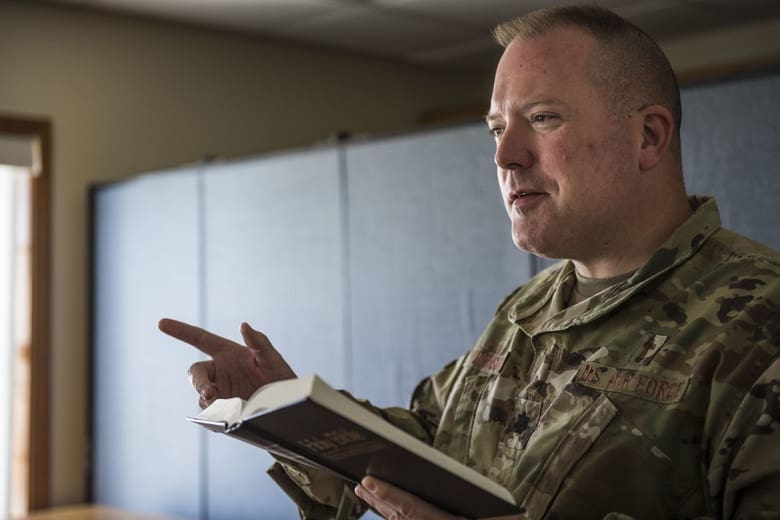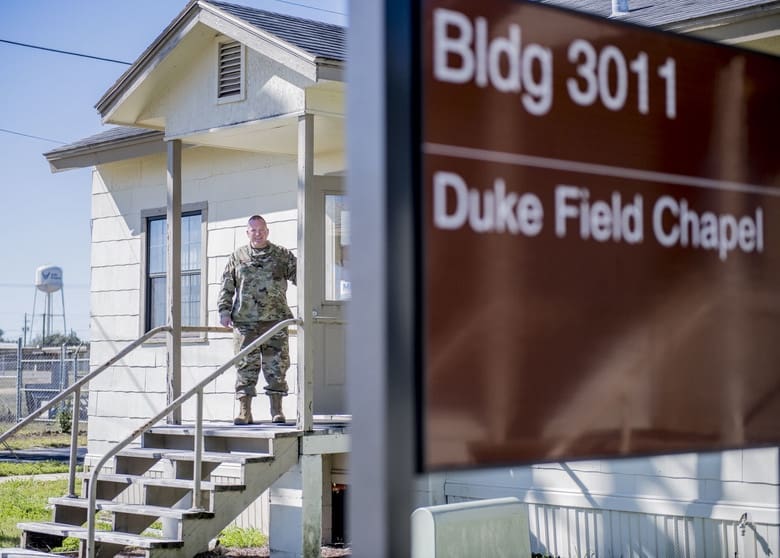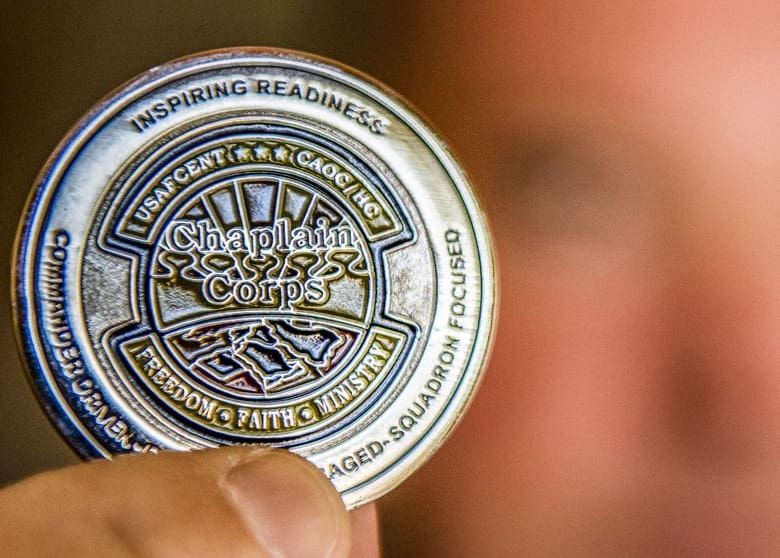DUKE FIELD, Fla. — The air in the desert is dry, hot, and full of sand. Most Airmen do not speak the language of the locals and are working hard to learn their culture. The work is fast and the days are long the intense Qatar sun. The thirst for relief isn’t just literal, it’s spiritual and the chaplains are on a mission provide deployed Airmen something cold to drink.

“The role faith played in building resilience in a deployed environment was very important,” said Chap. (Lt. Col.) Barry Dickson, 919th Special Operations Wing. “I would think it’s important everywhere but especially in the Middle East because people are separated from their families. They’re separated from the normal routine of their lives back home. Their living conditions are less than ideal. Their food is less than ideal. They can’t just buy what they want.”
Some Airmen would watch Netflix or go to the gym to recharge in this environment, but many of them wanted a strong spiritual life, said Dickson.
He knows first hand the challenges of being deployed to an austere location. While on a six month deployment to the Middle East that began in July 2019, he organized chapel operations and provided counsel to dozens of Airmen. People of faith wanted some semblance of home in a place that’s very different from the United States. The ministry overseas is there to provide that resource to them.

“Depending on the deployment site, the ministry can be very similar to what we do here,” said Master Sgt. Mike Adamson, superintendent of chapel operations for the 919th SOW. “It could be a mixture of administrative duties, counseling and crisis intervention, and unit visitation.”
Adamson doesn’t doubt that Dickson did an outstanding job as a chaplain overseas. His gentle and quiet demeanor makes him approachable when it comes to counseling situations, and his strong faith ensured he was fit regardless of the environment.
“I was the admin guy over there,” said Dickson. “My job was to figure out who’s going to provide the support that was needed. I had to develop a schedule often times when we had multiple prayer requests and events that needed a chaplain to be in attendance.”
He gained equivalent experience as an Active Duty chaplain on a larger base, said Dickson.
“There’s lots of people coming in and out, you have all kinds of programs such as children’s services, and you have limited time and resources to spread out,” he said.

He would often have to make sure his own people were okay while dealing with the high demand for chaplain support throughout the deployed location. For example, he occasionally had to have a junior chaplain fill in for a more seasoned one who had responded to an incident late at night or in the early morning hours.
Chaplains in deployed environments take steps to ensure they’re prepared to help others, said Adamson. Taking time each day for prayer, meditation or reflection, reading religious material, and maintaining relationships with people who will support and challenge their spiritual journey allows them to stay resilient enough to support others.
“Spiritual resilience is defined as the ability to sustain an individual’s sense of self and purpose through a set of beliefs, principles, or values,” said Adamson. “It’s about having faith in the future and believing there is meaning or purpose to your existence.”
Everyone in the chapel at [the deployed location] was eager to create new programs and get involved to help others, said Dickson. He was inspired by the group’s motivation throughout the deployment.
“Faith can counterbalance deployed living conditions and separation from family,” said Dickson. “It takes on a heightened importance with people in that environment. We managed a very robust program that required a great deal of oversight for a lot of moving parts and were very successful. Deployments are a marathon and you have to learn to pace yourself. At the end of the day, it’s about helping others and I think we did a really good job of that.”
By Senior Airman Dylan Gentile, 919th Special Operations Wing


Inspiring